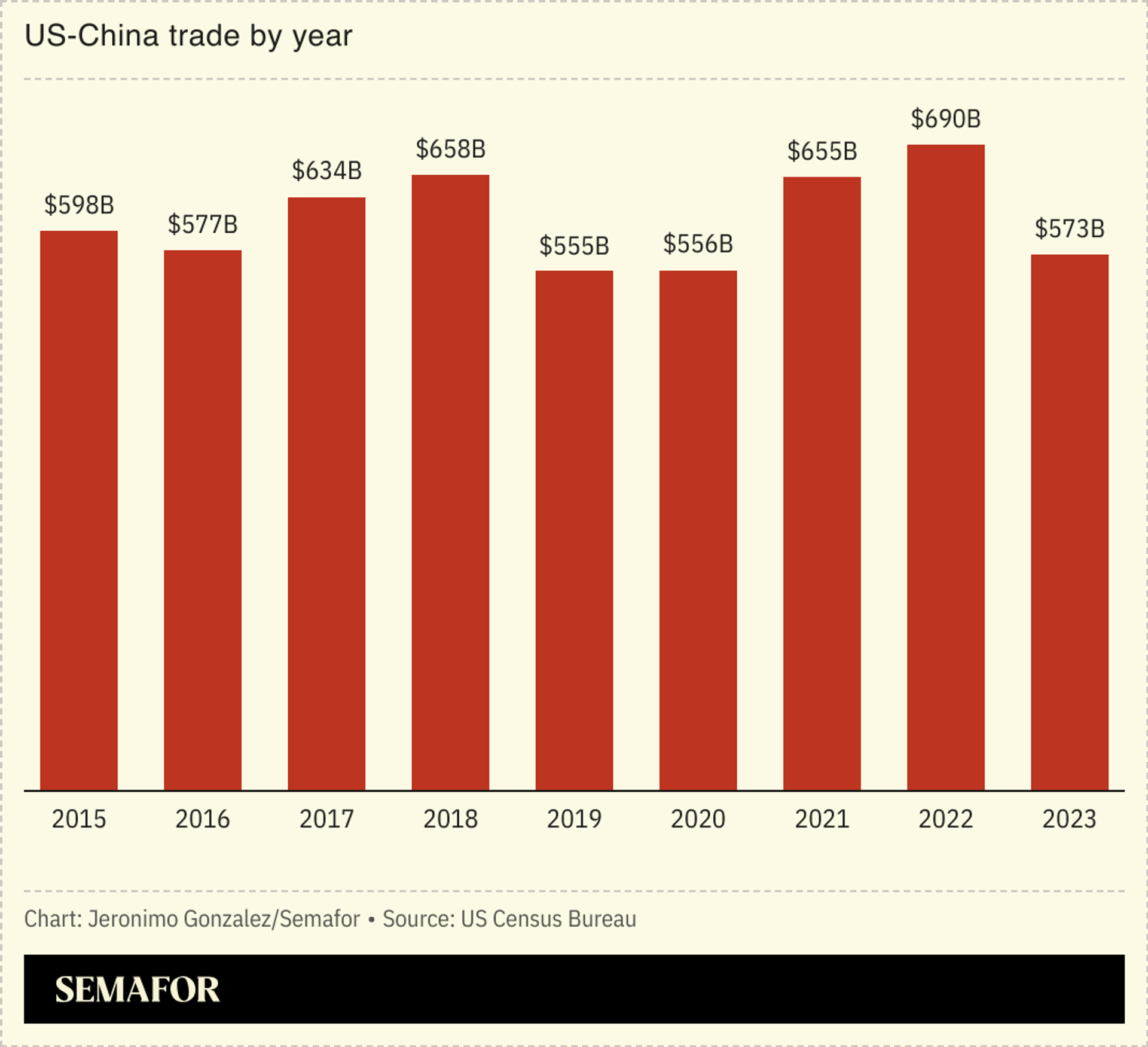The News
Beijing called for the US to lift all sanctions on Chinese goods as the trade war between the two countries continues.
The Chinese commerce ministry’s demand came ahead of an expected White House announcement of hikes on levies on electric vehicles and other goods. The announcement has already been delayed twice, most recently after US National Security Adviser Jake Sullivan visited Beijing to meet with high-ranking Chinese officials, including leader Xi Jinping, on the importance of managing the relationship between the superpowers, Reuters reported.
Tariffs imposed by the US and other countries are hurting the Chinese economy — JPMorgan downgraded Chinese stocks in the face of geopolitical tensions ahead of November’s US election.

SIGNALS
China’s batteries may be hit harder by US tariffs than EVs
The US is playing a “long game” with tariffs on China, by actually targeting batteries more than electric vehicles, a Foreign Policy columnist argued. Only 2% of all EVs sold in the US came from China in 2023, whereas China supplies about 70% of the lithium-ion batteries used by the US. The impact of tariffs on China’s battery sector will likely be massive; its US sales could drop by around one third. Washington has committed significant funds through the Inflation Reduction Act to boost its domestic production of batteries, the columnist wrote, so the tariffs could be seen as “preemptive measures to protect a nascent clean tech industry and make sure that there is domestic demand.”
Tariffs could negatively affect the US, some say
Economists critical of US tariffs on Chinese goods argue that they will not only raise product prices for American consumers, but could also slow down the economy, by forcing companies to purchase artificially expensive local goods instead of cheaper ones that could be coming from China, The New York Times reported. Another “unwelcome consequence” of the tariffs could be higher inflation, complicating the US Federal Reserve’s decisions to cut interest rates, analysts at S&P Global wrote in a report earlier this year.
Export restrictions on AI chips are creating the black market conditions
The trade war between the US and China has also involved sanctions, notably on exports of high-end AI chips produced by American tech giant Nvidia, among others. The curbs have hurt Chinese tech businesses, but a black market for the chips is proliferating, the Financial Times reported: Some small-scale cloud providers rent Nvidia servers to Chinese companies for just $6 an hour, cheaper than the equivalent service in the US. The price is “an indication of plentiful supply of Nvidia chips” and the circumvention of sanctions, the FT argued.

